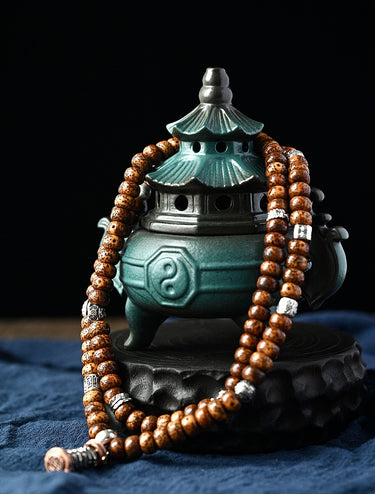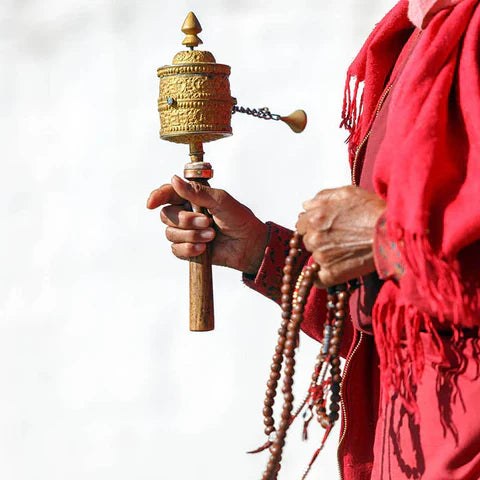Exploring the Meaning of Mantras in Tibetan Buddhism
Mantras hold a sacred place in Tibetan Buddhism, serving as powerful tools for spiritual practice and meditation. In this article, we will delve into the meaning and significance of mantras in Tibetan Buddhism, exploring their origins, purpose, and the transformative effects they hold for practitioners.

Origins of Mantras:
Mantras trace their roots back to ancient Sanskrit texts and Hindu traditions, where they were used as sacred chants and incantations to evoke spiritual energies and invoke divine blessings. In Tibetan Buddhism, mantras were introduced through the teachings of Indian masters and adapted to fit the unique cultural and linguistic context of Tibet.
What is Mantra?
At its core, a mantra is a sacred sound, syllable, word, or phrase that is repeated rhythmically during meditation or prayer. Each mantra carries its own vibration and energy, believed to have the power to transform consciousness and bring about spiritual awakening. Mantras are often associated with specific deities, bodhisattvas, or spiritual principles, and their recitation is considered a form of devotion and purification.

Purpose of Mantras:
The primary purpose of chanting mantras in Tibetan Buddhism is to cultivate mindfulness, concentration, and inner peace. By repeating a mantra with focused intention and devotion, practitioners can quiet the mind, dissolve distractions, and enter into deeper states of meditation. Mantras are also believed to purify negative karma, protect against spiritual obstacles, and generate positive energy for the benefit of all sentient beings.
Types of Mantras:
In Tibetan Buddhism, there are various types of mantras, each serving a specific purpose and associated with different deities or spiritual practices. Some mantras are known as "bija mantras," consisting of single syllables that represent the essence of a particular deity or principle. Others are longer, more elaborate mantras that invoke the blessings of specific buddhas, bodhisattvas, or protectors.
The Power of Repetition:
The repetition of mantras, known as "japa" in Sanskrit, is a central practice in Tibetan Buddhist meditation. Through continuous repetition, practitioners attune themselves to the subtle vibrations of the mantra, allowing its transformative energy to permeate their consciousness. This process of repetition gradually purifies the mind, awakens spiritual insight, and leads to the direct experience of enlightenment.

Conclusion:
In conclusion, mantras play a central role in Tibetan Buddhist practice, serving as potent vehicles for spiritual awakening and transformation. As practitioners chant these sacred sounds with devotion and mindfulness, they tap into the inherent power of sound to quiet the mind, purify the heart, and connect with the divine. Whether reciting a single syllable or a complex mantra, the practice of mantra meditation offers a direct path to inner peace, wisdom, and ultimate liberation.






























































































































